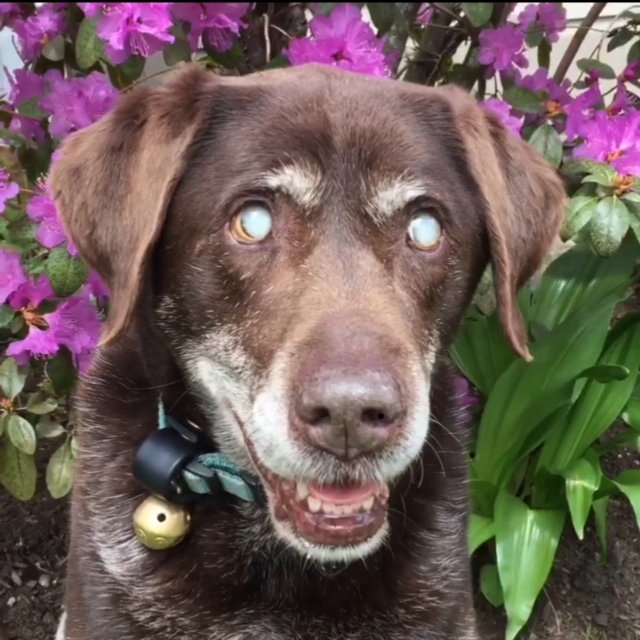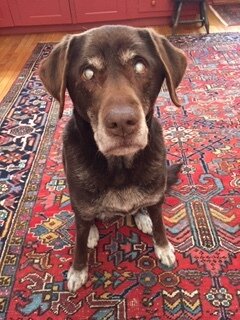“If you could kick the person in the pants responsible for most of your trouble, you wouldn't sit for a month.”― Theodore Roosevelt
Owner’s mentality. In a business sense, it’s the perspective of someone who takes personal responsibility for the success of an enterprise. You don’t have to be the owner to have Owner’s Mentality. For example: You are in the supermarket and ask a young employee, “Excuse me, where can I find the peanut butter?” The reply is a lifeless shoulder shrug and a mumbled, “I don’t know”, delivered with the energy of a jellyfish. You ask another store worker of a similar age the same question. The answer: “Aisle eleven, half-way down on the right. Here, come with me and I’ll show you.” You tell me, which one of these two people has Owner’s Mentality?
People with Owner’s Mentality (O.M.) do the little things like pick up trash on the shop floor without being asked. They voluntarily grab a shovel and clean the snow off the sidewalk because they want to prevent people from slipping and falling. If they see someone struggling with their purchases, they’ll offer to help. People with Owner’s Mentality change burned out batteries in the office wall clocks without being asked, close windows and doors and turn out lights in empty rooms to save energy costs. If they have idle time while on the job, they find something productive to do. In all enterprises, people with Owner’s Mentality stand out. The more people in an organization who have O.M., the more successful that organization will be. Period!
Sometimes, even an owner doesn’t have Owner’s Mentality. Those are the businesses that usually fail, and quickly, partly because the owners aren’t good at identifying, hiring and promoting people who have O.M. Haven’t we all had the experience of entering a store, seeing no one available and asking, “Hello, is anybody here?” Or waiting in a long line because workers are on breaks or at lunch during a store’s busiest times? And now, when so much customer service is delegated to online chatting with one of those humorless robots who can’t take a joke or think outside the box, I wonder who in the organization sanctions this stuff? Hopefully not the owner. And who hasn’t experienced 45-minute wait times on the phone lately, enduring unbearable music and monotonous ads just to speak to a person from a call center in another country who can’t really help you? Sometimes it seems O.M. can be as rare as receiving a hand-written thank-you note in the mail.
Of course, even with high doses of Owner’s Mentality, there are times when events slip completely out of anyone’s control and a business finds itself gasping for breath, like a swimmer in a tsunami. That’s when people with O.M. are at their best, developing original perspectives, seeking informed advice, and thinking and acting creatively rather than shrugging their shoulders like the apathetic “I don’t know” jellyfish. In some instances, failing cannot be avoided no matter how strong the O.M. is. People with Owner’s Mentality know that learning from failure is part of the deluxe package, providing valuable lessons and insights for the next go-round that no graduate school on earth can duplicate.
Owner’s Mentality can also relate to the idea that we each own our lives ─ our decisions, our health, our relationships, our responsibilities, our positive traits, our annoying habits, our good and bad judgements, the consequences of unfortunate, unexpected turns and our winning lottery tickets…all of it ─ without blame or arrogance. When we find ourselves intent on making excuses, pointing fingers and deflecting, it may be time to refill our Owner’s Mentality tanks. Fortunately, in our family we have an O.M. refill station living with us. Her name is Bessie.
Anthropomorphism is the act of assigning human characteristics to animal behavior. It is completely unscientific and irrational, but at least it has a name: anthropomorphism. All dog owners are happily guilty of interpreting their pet’s actions on personal terms, even using special voices to communicate with our canine soulmates.
From this perspective we have designated Bessie as a model of O.M. As far as we’ve ever been able to tell, Bessie doesn’t waste time blaming her parents for over breeding, which resulted in her blindness. And she appears to hold no lasting grudge against the kennel owners that allowed this to happen. She doesn’t swear with exasperation when she walks into something, and she never, EVER complains about a meal. She licks her wounds without grumbling and moves forward, always forward, finding new ways to adapt and thrive. Bessie ignores angry, barking dogs in the same nonchalant way an aging rock star ignores boos from the audience or a seasoned umpire chuckles under his mask at cat calls from angry home team fans. Bessie doesn’t let anything or anyone diminish her confidence. She has one direction, onward. Rain, snow or shine she is out the door with her tail wagging like a flag in a brisk wind.
We all experience bad, unlucky days and sad, knee buckling, life altering events. These sit on the spice shelf of life along with the joys and triumphs. If we don’t fully own all aspects of who we are and what happens to us, then who will? The answer is simple. Nobody, absolutely nobody! As my Gramps used to say, “Don’t pass the bucks. Keep ‘em in your wallet and find a smart way to invest them.” And he wasn’t talking about money, he was referring to life experiences.
Our O.M. tutor Bessie and Gramps would get along just fine. Farewell 2021, hello 2022! My New Year’s resolution? Try to Be like Bessie!
Tom Farmen
bessiesstory.com















